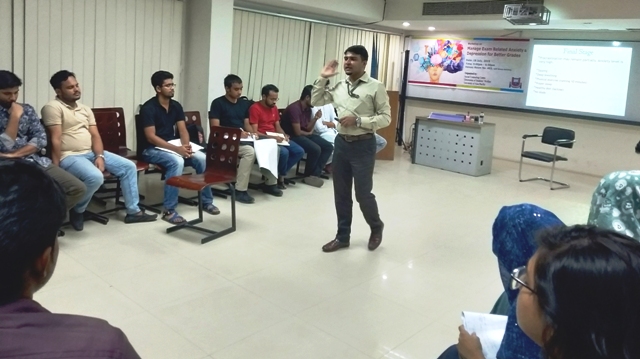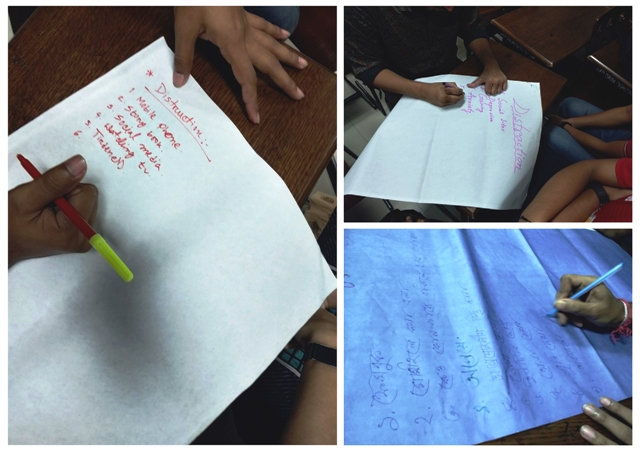Workshop on 'How to Manage Exam Related Anxiety & Depression for Better Grades'
The Social Counseling Centre of University of Asia Pacific (UAP) organized a workshop on 'How to Manage Exam Related Anxiety & Depression for Better Grades' on 18th July, 2019 at room number 403 of UAP Annex Building. The workshop was facilitated by Mr. Md. Rakibul Hasan, Socio Counselor, UAP which was designed with different group activities that made the students participate very actively throughout the session.


At the beginning the facilitator talked about the difference between depression and Anxiety, and how these mental states hamper study. Then he oriented the students about the signs to detect depression and anxiety during and prior to exam time. Moreover, discussion was made on the usefulness of stress (anxiety) and how much of it is required to obtain the optimal performance in the exam. The main lecture was divided into three parts based on the amount of time students have prior to exam for study namely, early stage (procrastinating stage), intermediate stage and final stage (cramming stage), where he pointed out different strategies for each stage and how students can put their efforts to get the optimal output using those strategies.
One of the key discussion points in the workshop was ‘procrastination’ which has been identified by the students as a key hindrance while remain consistent with their studies. On that occasion, students were provided with tools like ‘time management kit’ and ‘smart goal setting kit’ which helped them to plan accordingly to manage those hindrances and take better preparation before exam. Other than this, the students were taught how to keep themselves calm during excessive stress just before the exam night with the help of diaphragmatic breathing and mindfulness exercises. Through the group activities they have identified the elements of distraction during study time and set the goal specifically being emotional involved with their goal/dream to help themselves with the consistent uninterrupted study routine.
The workshop was wrapped up by a Q&A session where they asked several questions and expressed their opinion about the effectiveness of the workshop.
